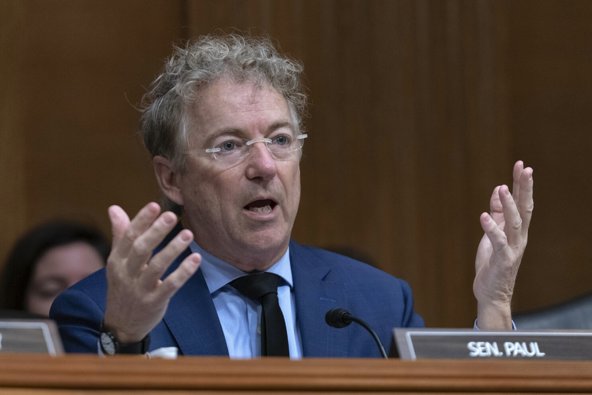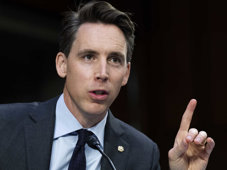
Trump Pressures Paul on Spending Bill
President Trump warned Sen. Rand Paul that opposing the “Big, Beautiful Bill” would align him with Democrats and risk economic fallout.
Trump Urges Unity on Key Legislation
President Donald Trump on Saturday issued a pointed warning to Senator Rand Paul, R-Ky., over the senator’s opposition to the administration’s “Big, Beautiful Bill,” a major legislative package that includes sweeping tax reforms and federal program adjustments. Trump’s message came via Truth Social, where he said voting against the bill would mean supporting a historic tax increase and risking a default on U.S. debt.
“If Senator Rand Paul votes against our Great, Big, Beautiful Bill, he is voting for, along with the Radical Left Democrats, a 68% Tax Increase and... a first time ever default on U.S. Debt,” Trump wrote. He added that Kentuckians “will never forgive him.” Trump insisted the country’s economic growth and future cost-cutting measures would offset concerns about rising debt.
The bill narrowly passed the House on May 22 and is now headed to the Senate, where Republicans can afford to lose no more than three votes. Several GOP senators, including Ron Johnson of Wisconsin, have expressed reservations about its potential impact on the federal deficit.
Paul Raises Debt Concerns
Senator Paul voiced support for the bill’s tax and spending cuts but criticized its overall fiscal impact. “It’s wimpy and anemic,” he said on Fox News Sunday, referring to the cuts, “but I still would support the bill… if they weren’t going to explode the debt.” He claimed the bill could increase the deficit by $4 trillion, or even $5 trillion, depending on Senate estimates.
Trump, however, signaled openness to Senate-led amendments. “I want the Senate and the senators to make the changes they want,” he told reporters last weekend, noting that the bill could return to the House for final approval after modifications. He added that some changes might be acceptable to him personally.
The One Big Beautiful Bill Act also proposes stricter eligibility rules for Medicaid and reforms to the Supplemental Nutrition Assistance Program (SNAP), along with provisions eliminating taxes on overtime pay and tips. These components have fueled debate across party lines.
Democrats have criticized the bill’s Medicaid provisions, warning of widespread coverage loss and tying the issue to upcoming 2026 midterm campaigns. The Congressional Budget Office (CBO) estimates that 8.6 million people could lose health insurance by 2034 due to the proposed changes. That number rises to 13.7 million when including the expiration of Affordable Care Act tax credits.
Representative Erin Houchin, R-Ind., disputed the CBO projection, calling it “blatantly false.” She argued that Democrats had already scheduled the expiration of ACA tax credits and that the bill simply respects that timeline. Houchin added, “I don't trust the CBO score, nor should the American people.”
As Senate deliberations continue, Trump’s public messaging underscores the political stakes for Republican unity. With tight margins and contentious policy components, the bill’s fate—and its impact on federal spending and healthcare coverage—remains uncertain.






